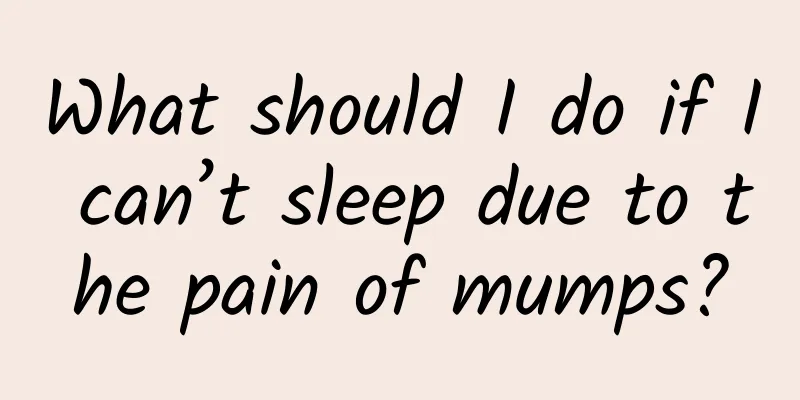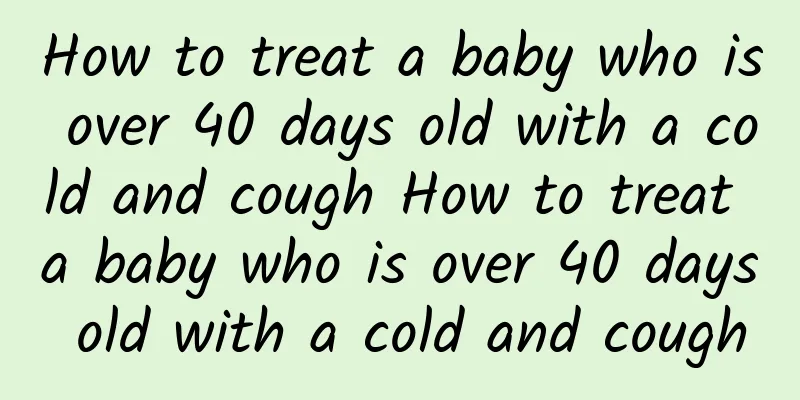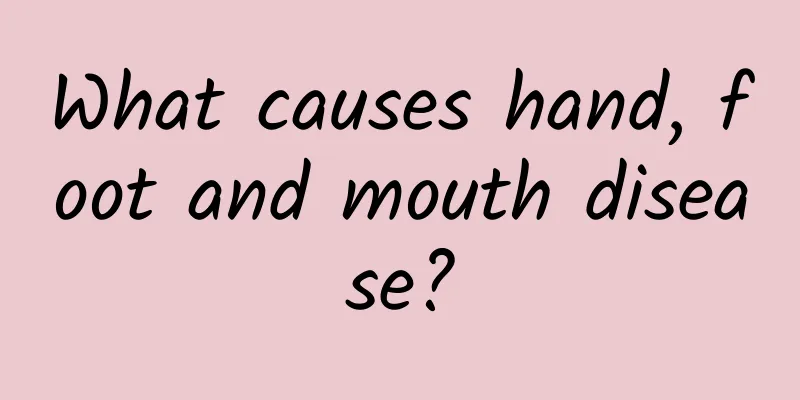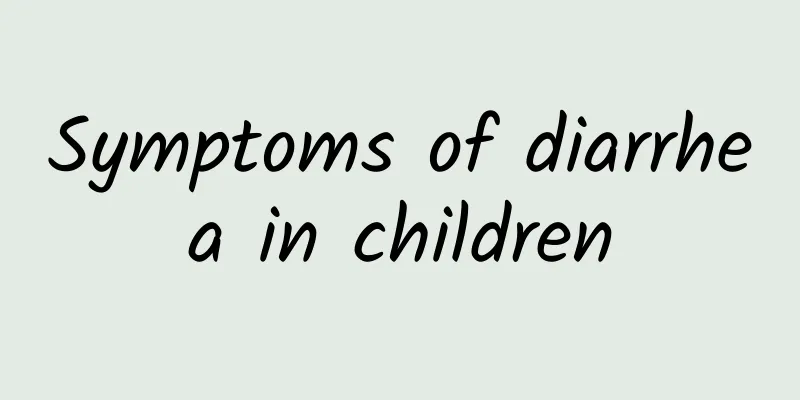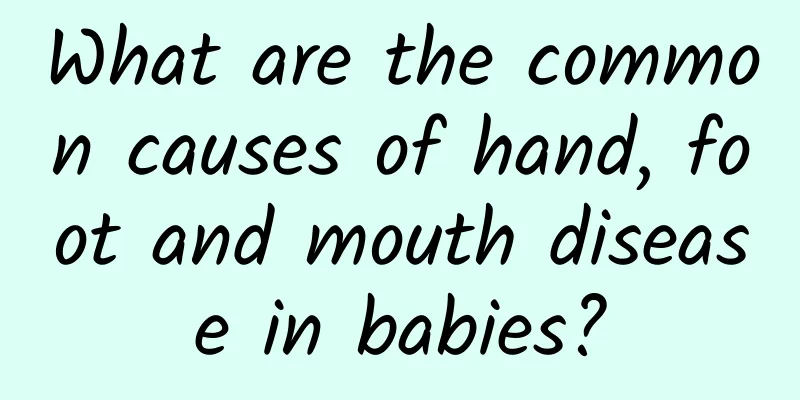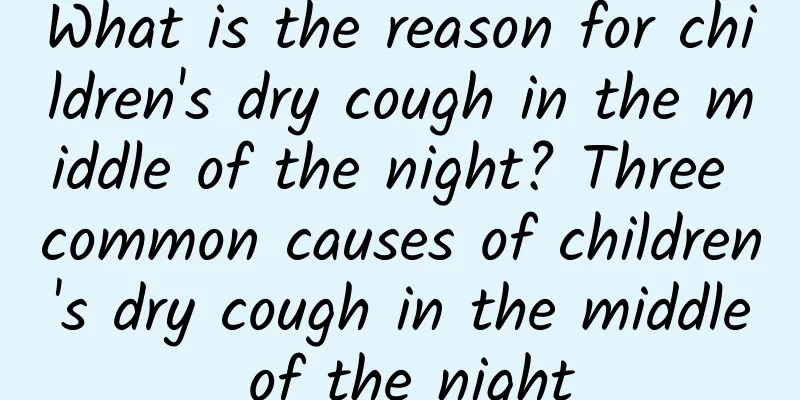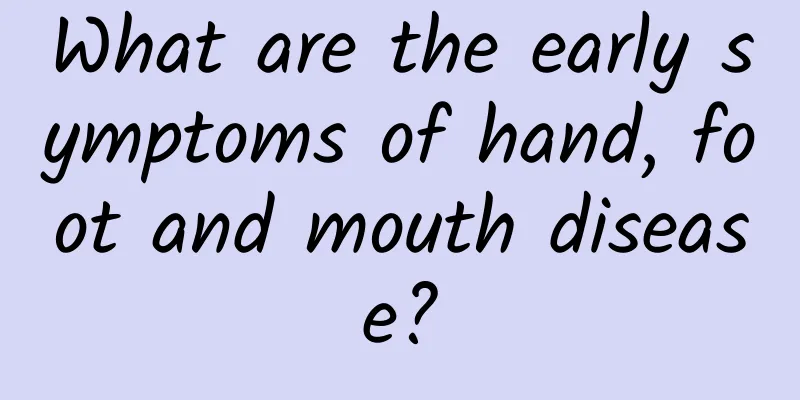What are the symptoms of hand, foot and mouth disease in children?
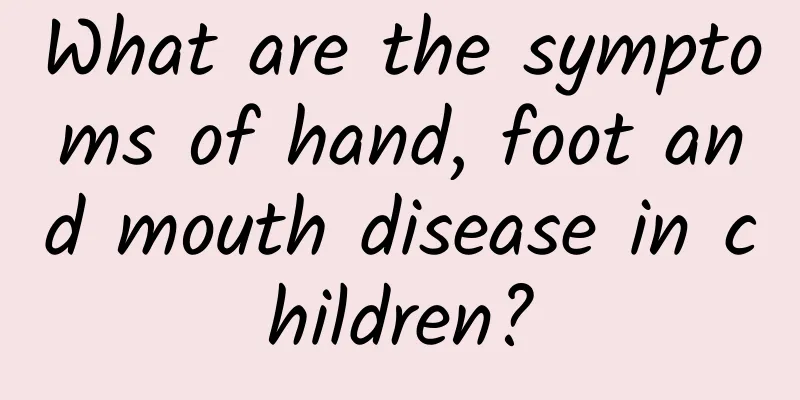
|
During the high incidence of hand, foot and mouth disease, mothers are very worried, because hand, foot and mouth disease is an acute infectious disease that can be transmitted through many ways, and the symptoms of this disease in young children are similar to colds and fevers at the beginning, so mothers must pay close attention. What are the symptoms of hand, foot and mouth disease in children? Let's take a look! 1. Fever Most children develop the disease suddenly with a fever, mostly around 38°C. Fever is usually the first symptom of hand, foot and mouth disease, 1-2 days earlier than the rash, accompanied by mild flu-like symptoms such as cough, runny nose, nausea, vomiting, etc., which are often mistaken by parents for common colds. 2. Herpes in the mouth Herpes often appears 1-2 days after the fever, with oral mucosal rashes appearing earlier. The main manifestations are millet-sized blisters on the hard palate, buccal mucosa, tongue, lips and gums, which are painful and quickly break to form a grayish-white membrane or shallow ulcers surrounded by redness. Due to the pain of oral ulcers, children often drool, refuse to eat, cry and become irritable. 3. Blisters on the hands and feet Mainly appear on the hands, feet, back of fingers or sides, especially around the nails and sides of the heels. Herpes on the hands and feet appears as rice-sized to pea-sized blisters, round or oval, with thin walls and clear, milky white contents. The blisters may have a sunken center, turn yellow, dry, and fall off (desquamation). Herpes is generally painless and itchy. 4. Symptoms of severe cases In a few cases (especially those under 3 years old), the disease progresses rapidly, with meningitis, encephalitis (brainstem encephalitis is the most dangerous), encephalomyelitis, pulmonary edema, circulatory disorders, etc. occurring within 1 to 5 days of onset. In very rare cases, the condition is critical and can lead to death, and survivors may have sequelae. (1) Neurological manifestations Poor spirit, drowsiness, easy to be startled; headache, vomiting; limb myoclonus, nystagmus, ataxia, eye movement disorder; weakness or acute flaccid paralysis; convulsions. Physical examination can show signs of meningeal irritation, and tendon reflexes are weakened or absent. Critical cases may show coma, cerebral edema, and brain herniation. (2) Respiratory system manifestations Shallow breathing, difficulty breathing or changes in rhythm, cyanosis of the lips, cough, coughing up white, pink or bloody foamy sputum; moist rales or sputum sounds can be heard in the lungs. (3) Circulatory system manifestations Pale face, skin patterns, cold limbs, cyanosis of fingers and toes; cold sweats; faster or slower heart rate, shallow or weak or even absent pulse; increased or decreased blood pressure. 5. Notes Once parents find that their baby has a fever and small blisters appear around the mouth, hands and feet, they should immediately take the child to the hospital for diagnosis. If there are no complications, the prognosis of this disease is generally good and it usually recovers within a week. However, the child should be isolated and the contact should be disinfected and isolated to avoid cross infection. At the same time, oral care should be done well and medication should be applied to the ulcer surface as prescribed by the doctor. Clothes and bedding should be clean, comfortable, soft, and changed frequently. 6. How to prevent recurrence of hand, foot and mouth disease Hand, foot and mouth disease is currently mainly transmitted through contact, and there is no targeted vaccine to prevent it. Therefore, developing good personal hygiene habits and dietary hygiene habits is the key to preventing hand, foot and mouth disease. Wash your hands frequently, open windows for ventilation, and disinfect items that come into contact with children on a daily basis, such as tableware, bottles, and toys, regularly. Try to avoid going to public places during the epidemic. |
<<: Children with allergic rhinitis cough all year round
Recommend
What is DMD
DMD, or Duchenne Muscular Dystrophy, is an inheri...
Should I reduce the amount of milk I feed my child when he has diarrhea? Three things to pay attention to when feeding a child with diarrhea
Diarrhea in children is a very common disease in ...
What are the examination items for pediatric eczema?
Eczema is a common inflammatory skin disease of t...
What are the main symptoms of pneumonia in children?
The main symptoms of pneumonia in children includ...
Can pneumonia in children heal itself?
Very few cases of pneumonia in children can heal ...
Symptoms of jaundice hepatitis
Jaundice hepatitis refers to liver disease that l...
What are the causes of baby indigestion? Here are 6 tips to help your baby with indigestion.
The baby's digestive system is not yet mature...
What medicine is good for children with pneumonia and bronchitis?
Pneumonia and bronchitis in children require a do...
How to reduce the fever caused by hand, foot and mouth disease? What are the symptoms of hand, foot and mouth disease fever?
Hand, foot and mouth disease is a relatively comm...
Can I pinch the Renzhong point when a child has convulsions?
It is not recommended to pinch the Ren Zhong poin...
What medicine is better for children with cough? How to use medicine for children with cough
Children have relatively weak resistance and are ...
Is polio treatable?
Polio cannot be completely cured, but early diagn...
How to cure pneumonia in children
Neonatal pneumonia is a very common disease. The ...
What is phenylketonuria?
What is the overall profile of phenylketonuria? F...
Why are there no hair on your legs?
There are a number of factors that may be at play...

